Politics
Government tight-lipped amid growing clamour to reveal Saudi project for Faafu atoll
Speculation of the imminent sale of Faafu atoll to the Saudi royal family intensified this week when the media learned of the Saudi King’s upcoming official visit to the Maldives, prompting concerns over the scope for corruption, threats to sovereignty, and potential damage to the environment.
Published
7 years agoon
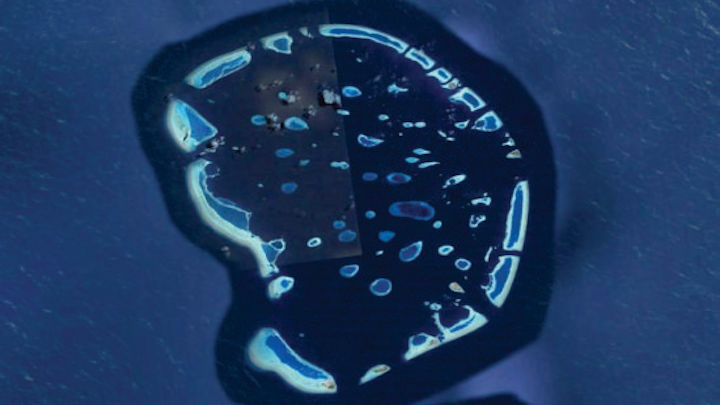
The government remains tight-lipped about an alleged plan to depopulate and sell Faafu atoll to the Saudi royal family, despite a growing clamour for information to be made public.
In recent days, the main opposition Maldivian Democratic Party and the Adhaalath Party strongly objected to foreign ownership of Maldivian land whilst members of the Faafu atoll council, former President Maumoon Abdul Gayoom and anti-corruption NGO Transparency Maldives called on the government to break its silence.
Rumours of the sale that first began swirling after the passage of constitutional amendments authorising foreign freeholds were revived last month with President Abdulla Yameen’s announcement of a massive Saudi-funded project in Faafu atoll.
Yameen did not offer details of the “township or integrated development project” and the government has yet to make any official announcements.
Speculation intensified this week when the media learned of the Saudi King’s upcoming official visit to the Maldives, prompting debate among Maldivians as many raised concerns on social media over the scope for corruption and threats to sovereignty.
The president’s office spokesman and Economic Development Minister Mohamed Saeed did not respond despite multiple calls. Saeed chairs the Special Economic Zones board, which grants permits for large-scale investments that qualify for tax and regulatory exemptions.
Asked about the alleged plans at a press briefing on Wednesday, Defence Minister Adam Shareef Umar said that the public should trust that the president will act for their benefit in accordance with the constitution and laws.
Fisheries Minister Dr Mohamed Shainee became the first top official to directly address the allegations when he told Sun Online last night that the government has no plans to sell an atoll. He accused the opposition of spreading false rumours to undermine Yameen’s public support ahead of April’s local council elections.
Dr Abdulla Khaleel, a ruling party lawmaker who represents the Nilandhoo constituency in Faafu atoll, also said yesterday that the “massive multi-billion dollar project” does not involve the sale of either an island or any part of the atoll.
Faafu atoll will remain sovereign Maldivian land subject to Maldivian law, he wrote on Facebook, adding that the atoll’s 4,119 inhabitants “can live happily and contentedly in Faafu atoll.”
Contacted by the Maldives Independent today, however, Khaleel declined to comment.
“In the future, no one will come to Malé. Everyone in the Maldives will go to Faafu for healthcare, education, and jobs,” MP Ahmed Mubeen from the ruling party tweeted today, appealing against “obstruction” of the government’s development plans.
Mubeen, who represents the Faafu Bilehdhoo constituency, questioned the opposition to the forthcoming “investment” as 99-year resort leases did not elicit similar objections.
But Abdul Hameed Mohamed, president of the Faafu atoll council and a ruling party member, told the Maldives Independent that the council has been getting “conflicting” information about the deal.
Hameed said councillors were previously informed of plans by the Saudis to develop the uninhabited island of Himithi and a nearby lagoon for tourism.
“But now we are getting information from the media that Faafu atoll is going to be sold,” he said.
“If there is an investment, it will be beneficial to each and every person of this atoll. However, if Faafu is going to be sold, I will not agree to that decision. That is my personal opinion.
“If we sell something then we lose ownership over it. But the Maldives constitution allows it now and we have to respect that.”
Ibrahim Naeem, an MDP member on the Faafu atoll council, said most of the atoll’s people are against selling land with the exception of some ruling party supporters.
“We are living very peacefully here, as life is in most islands. We are a calm loving people. If we sell our land we’d have to move to the stressful, congested Greater Malé area,” he told the Maldives Independent.
Naeem said he saw Khaleel’s assurance. “But how will that work? Will we be able to fish freely in this atoll? Can we go to any island we want? That would be like imprisoning us,” he said.
“There is so much fear surrounding this. The Saudis are bad people. We have seen how they come to our resorts and live. We have seen what they do in the name of Islam. If Faafu is sold it will become a land of sin. They will sell alcohol here. They will hold liquor parties here.”
The MDP’s parliamentary group meanwhile decided on Wednesday to submit a bill to repeal the constitutional amendments on freeholds, which would require a three-quarters majority of parliament.
The ruling Progressive Party of Maldives controls a comfortable majority in the 85-member house.
The controversial amendments were passed in July 2015 with the votes of 10 MDP MPs. Only 14 lawmakers voted against the proposed changes, including 10 from the MDP and two from the Jumhooree Party as well as Adhaalath Party MP Anara Naeem and Independent MP Ahmed Mahloof.
Despite former President Gayoom’s calls for a public referendum on foreign freeholds, his son MP Faris Maumoon also voted in favour along with all ruling coalition lawmakers.
Faris said today that he will vote to repeal. He previously suggested that the secrecy surrounding the project indicates “undesirable elements”.
PPM MP Mohamed Musthafa, who has sided with Gayoom’s faction of the ruling party, alleged on Tuesday that 58 lawmakers were “threatened” and forced to vote in favour of freeholds.
The MDP had issued a free whip on the vote as part of a deal to secure the release of former President Mohamed Nasheed and other jailed politicians. The party later accused the government of reneging on its commitments and the opposition leader was taken back to jail after eight weeks under house arrest.
Amid mounting pressure in the wake of a UN rights panel ruling that his jailing was arbitrary and politically motivated, Nasheed was later authorised to seek medical treatment in the UK, where he has since been granted political asylum.
Allegations of irregular funding of the current regime by the Saudi Govt is an issue of concern to the vast majority of Maldivians.
— Mohamed Nasheed (@MohamedNasheed) February 12, 2017
On 22/7/15, PPM & MDP reached a secret deal & voted to amend the constitution allowing the sale of our land. So, say YES to our #ThirdFront
— Umar Naseer (@UmarNaseerMV) February 21, 2017
PPM made no deal with any party to change the constitution; maybe some elements within govt did. Please be accurate!
— Maumoon Abdul Gayoom (@maumoonagayoom) February 21, 2017
Repealing of the constitutional amendment allowing for foreign ownership of Maldivian land is an absolute must!
— Maumoon Abdul Gayoom (@maumoonagayoom) February 23, 2017
The evil plan of Pres. Maumoon & Pres. Nasheed is to destroy developing economy by creating doubt amongst potential investors n Maldivians.
— Mohamed Shainee (@mshainee) February 22, 2017
Call your MP, Presidents office, Tourism Ministry and ask them what is happening to #FaafuAtoll #MaBassaa pic.twitter.com/na6uVaUvnY
— Transparency MV (@TransparencyMV) February 22, 2017
Maldivian Democratic Party Calls on the Govt of Maldives to Immediately Stop the Sale of Faaf Atoll. https://t.co/I08EkPv7cb
— Eva Abdulla 🎈❓ (@evattey) February 22, 2017
Sincere thanks to the concerned citizen who started this petition. #SaveFaafu https://t.co/TQqZkrKpQH
— 𝐌𝐏 𝐑𝐨𝐳𝐚𝐢𝐧𝐚 𝐀𝐝𝐚𝐦 🎈 (@Roxeyna) February 22, 2017
Faafu Atoll sale isn't just about less land for natives, much wider implications. Allows our islands to be used for geopolitical standoffs.
— Mickail Naseem 🎈 (@MickailNaseem) February 20, 2017
Naive to think SA will develop a city in Faafu for the rich & stop. Eventually they'd have enough leverage to dictate our foreign policy.
— Mickail Naseem 🎈 (@MickailNaseem) February 20, 2017
If not all Faafu, but 1 island & its lagoons are sold to be dredged & reclaimed as a playground for the rich, that okay with you? #tharaggee
— AzraNaseem (@Manje) February 22, 2017
it's amazing that the govt hasn't felt the need to publicly address this issue n either confirm or deny the story.
— Muku (@mukunaeem) February 22, 2017
Shame that MPs of MDP voted yes to land sale amendment which paved the way for the Faafu atoll deal. Blame them for voting in own interests.
— sighpad.m™ (@sighpad) February 22, 2017
For MDP land is a factor of production. Issue with selling land to the Saud Family is that of process and transparency.
— Alex Ahmed (@anedhivehirajje) February 15, 2017
I'm against selling land to foreigners even with process and transparency. The people of Faafu atoll must have a say. https://t.co/ScoX4rYaZO
— Luke (@Lucasjalyl) February 19, 2017
An entire atoll being sold to Saudi Arabia?
No to Saudi Arabia's direct financing of this regime through irregular means. @KingSalman pic.twitter.com/dPI7fScuHr
— Shauna Aminath 🎈❓ (@anuahsa) February 14, 2017
Caveat Emptor. This is all we have to say to any foreign or local investor. https://t.co/29tD33zZUh
— Fayyaz Ismail (@faya_i) February 14, 2017
"Will submit necessary Constitutional amendment; do everything necessary to stop the sale of Faaf Atoll"-MDP Parliamentary Leader @ibusolih pic.twitter.com/Xqeo5Qbd8Q
— Eva Abdulla 🎈❓ (@evattey) February 22, 2017
— kuhthaa (@kuhthaa) February 23, 2017
No more Faafu pic.twitter.com/x00Rkefku0
— ⚫️⚪️TEDRY🎈❓ (@tedry) February 21, 2017
Saw women's driving in town! Will it be the same in Faafu? @saaxu_aloha #womensmustdrive pic.twitter.com/1NNmoSNIt1
— diver aana 🎈 (@diveraana) February 23, 2017
Related Posts
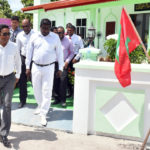 President’s announcement revives rumours about the sale of Maldives atoll to Saudi Arabia
President’s announcement revives rumours about the sale of Maldives atoll to Saudi Arabia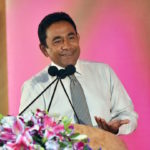 No cause for concern over ‘US$10bn Faafu atoll project,’ insists Yameen
No cause for concern over ‘US$10bn Faafu atoll project,’ insists Yameen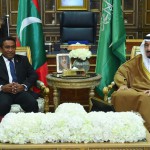 Saudi Arabia opens embassy in Maldives
Saudi Arabia opens embassy in Maldives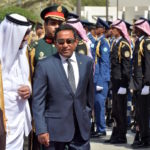 MDP warns of ‘creeping colonialism’ by Saudi Arabia
MDP warns of ‘creeping colonialism’ by Saudi Arabia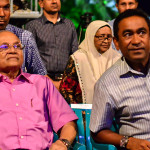 Gayoom’s call for referendum on foreign freeholds dismissed
Gayoom’s call for referendum on foreign freeholds dismissed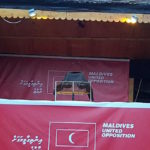 Has the Maldives United Opposition failed to ‘restore democracy’?
Has the Maldives United Opposition failed to ‘restore democracy’?
You may like
-


Maldives Independent suspends operations
-


EPA rejects Maafaru runway expansion project
-


Infrastructure development pushing islands to ‘tipping point’
-


Military alert level raised as ‘precautionary measure’
-


Taxi driver was fatally stabbed during robbery
-
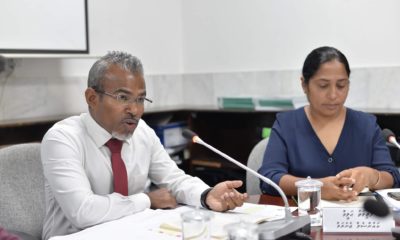

Arbitration case filed in Singapore over Fushidhiggaru lagoon

Maldives Independent suspends operations

Iyaz on Female Circumcision

EPA rejects Maafaru runway expansion project

Infrastructure development pushing islands to ‘tipping point’


